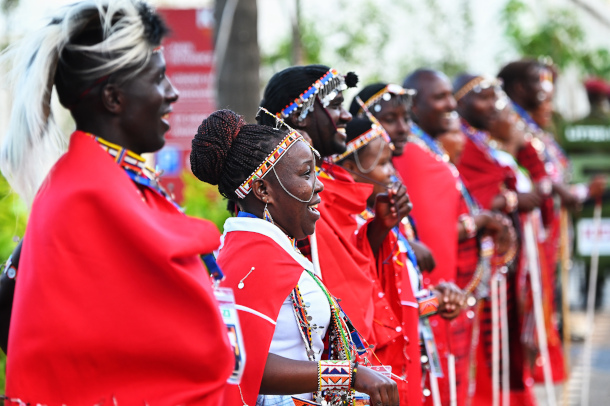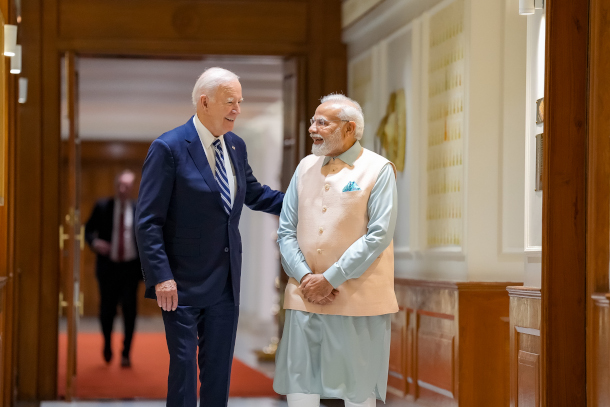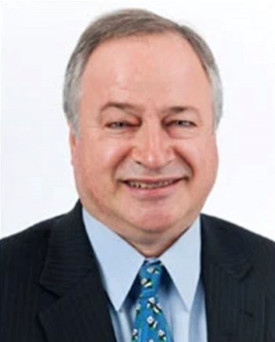Turning Up the Heat on Climate Finance
Air Date: Week of September 15, 2023

Kenyan people in traditional dress during the visit of Ursula von der Leyen, President of the European Commission, to Nairobi, Kenya where she participated in the Africa Climate Summit on September 5th, 2023. (Photo: Dati Bento, European Union, EC, Fair Use)
Africa has emitted a tiny fraction of the greenhouse gas emissions from the more developed parts of the world but is experiencing catastrophic impacts with little ability to adapt. Alden Meyer of E3G joins Host Jenni Doering to explain how climate finance was a focus of the recent Africa Climate Summit, which took place in advance of the Climate Ambition Summit that UN Secretary General Antonio Guterres is convening in New York on September 20th.
Transcript
DOERING: It’s Living on Earth, I’m Jenni Doering
CURWOOD: And I’m Steve Curwood.
The world’s presidents, prime ministers and royal heads of state are set to gather in New York for the opening of the United Nations General Assembly where on September 20th UN Secretary General Antonio Guterres plans to convene a Climate Ambition Summit. The Secretary General has dubbed the growing climate emergency ‘global boiling’ and is warning time is rapidly running out to avoid catastrophe. The day-long UN Climate Summit will give nations the chance to announce new commitments to reduce climate disrupting emissions.
DOERING: Disasters linked to the warming Earth are now routine around the world, and North Africa recently became the latest region to suffer extreme flooding that killed as many as twenty thousand Libyans. Africa is almost defenseless to climate disruption, though that continent has emitted just a tiny fraction of the historical greenhouse gas emissions from the more developed parts of the world. So, equity was a focus in early September in Nairobi, Kenya where Kenyan President William Ruto led the first Africa Climate summit with two dozen or so other national leaders, including the presidents of Libya, Tanzania and Senegal, while those of fossil fuel rich South Africa and Nigeria were notably absent. Some thirty thousand people from civil society also attended the summit, which created the Nairobi Declaration calling on richer nations to double down on financial help for a just energy transition in Africa. But hundreds of demonstrators with Friends of the Earth and other groups marched through the streets of Nairobi to demand even stronger action and protest the summit’s focus on private market solutions like carbon credits instead of a phase down of fossil fuels.
BABWALE (Friends of the earth activist): What we need now is that Africa’s energy system be decolonized, it should be put in the hands of people. This is not a time that we should promote a carbon market. It is not going to put an end to the different climate crisis that Africa is today facing.
DOERING: For more on these climate summits we turn to Alden Meyer, a senior associate with E3G. Alden welcome back to Living on Earth!
MEYER: Good to be with you again.
DOERING: So the first African climate summit has come to an end. And Africa is among the most vulnerable continents to the impacts of climate change but it doesn't have much in terms of financial resources to help it adapt. What was discussed around climate adaptation finance at the African Climate Summit?

Kenyan President William Ruto led the 2023 Africa Climate Summit in Nairobi. (Photo: Presidenza della Repubblica, Wikimedia Commons)
MEYER: Well, they gathered leaders from the African countries in Nairobi, this was the first ever African climate summit at the leader level. And they did talk a lot about the impacts of climate change on Africa, the impact it's having on their economies, their debt levels, the need for financial relief and the need for ramped up assistance. They called on the developed countries to meet the commitment they made two years ago at the Conference of the Parties meeting in Glasgow, to double adaptation finance from $20 billion to $40 billion a year. And they also called on the World Bank and other multilateral development bank's to ramp up their financial assistance to Africa to deal with the mounting impacts of climate change.
DOERING: And why is it so important to provide that financial assistance both in the form of grants as well as loans Alden?
MEYER: Well, obviously, if it's provided in the form of loans and it's not at a concessional interest rate, it's just adding to the debt burden that a number of these countries are experiencing. Of course, they were already coming off the shock of the pandemic and lower prices for exports of commodities, the impact on tourism, the impacts on their economies. And then that's magnified by the impacts of climate change itself, which has been estimated to cost some of these countries several percent of their GDP just going to respond to climate related disasters. So they really need to see more financial assistance in the form of grants or concessional low interest loans. And that's part of what they called for coming out of the summit.
DOERING: Right, and just so people understand, I mean, what's the interest rate like when an African business tries to get a loan?
MEYER: Well, if you're talking about investments in clean energy technologies, which was another major focus of the summit, looking at wind, solar, or other renewable technologies, oftentimes, governments or companies in Africa are facing interest rates in the high teens, 15, 16, 18%, sometimes even 20%, compared to the low single digits for the United States, Europe, other developed countries. And what that does is given the fact that these technologies, they don't have fuel costs, but they're more expensive upfront, they have higher capital costs, sometimes that makes these projects pencil out as not economically viable. And they're not able to attract foreign investors to put money into the renewable energy transition. So that was another big focus of the summit, was the need for financial intermediaries like the World Bank to help reduce the perceived risk of private sector investment in Africa for the clean energy transition.

President Biden and Prime Minister Modi of India during the 2023 G20 Summit hosted in Delhi. (Photo: Office of the President of the United States, Wikimedia Commons, public domain)
DOERING: To what extent was fairness a part of this summit and the discussions there? I mean, you know, just the fact that Africa is facing some of the worst impacts of climate change but it really is contributing the least.
MEYER: That really was a major theme running through this, the fact that Africa, as you said, is experiencing devastating climate impacts. The climate is actually changing more rapidly in Africa than other places in the world. And they don't have the resources to cope with those impacts. And they had very little to do with creating this problem in terms of historical emissions. So there is an element of equity, fairness, climate justice, call it what you want running through this, that really did come out from leaders and from the Nairobi Declaration.
DOERING: Now I understand that renewable energy was a pretty important discussion at the G20 Summit, which just wrapped up in India. The 20 largest economies of the world came together to meet there. So what were some of the key takeaways at the G20?
MEYER: Well, renewable energy was a success, they were able to overcome some of the divisions they experienced back in July at the ministerial meetings of energy ministers and climate and environment ministers and get agreement on a goal of tripling global renewable energy capacity by 2030. Of course, just like with the African climate summit that carries with it the need for implementation strategies, particularly finance, but also access to critical minerals needed for batteries, electric vehicles, solar photovoltaics, other technologies, issues like integrating renewables into the power grid in countries around the world workforce development, etc. On the other their hands they were unable to reach any agreement on the need to phase down production and use of fossil fuels. The most they were able to do was reiterate the language from last year's G20 Leaders Summit in Bali, Indonesia, calling for countries to phase down unabated coal power generation. They weren't able to extend that to include oil and gas.

Alden Meyer is a Senior Associate at E3G working on US and international climate policy and politics. He is a Principal at Performance Partners, which provides a range of consulting services to clients in government, business, and the non-profit sector. (Photo: Courtesy of Alden Meyer)
DOERING: Now Alden a climate ambition Summit is set to take place in New York on September 20th, and UN Secretary Antonio Guterres will host the event. What can we expect to see there?
MEYER: Well, he has laid out a very bold ambition acceleration agenda, which calls for countries to reach net zero emissions by 2040 for developed countries like the US and Europe and by 2050 for developing countries like India, China and others. That's a very ambitious timeline. He's called for the phase out of coal power generation by 2030 for developed countries, 2040 for developing countries. He's called for eliminating the massive subsidies that go to production and consumption of fossil fuels from taxpayers around the world. It remains to be seen what new commitments will be made at that summit, they have announced that over 100 leaders have accepted the invitation to attend but they have not indicated which of those leaders are going to put new commitments on the table. He is saying that to get a speaking slot at the meeting next Wednesday, you will have to have something new to say, you're not just going to automatically be given your three minutes to say whatever you want, you've got to bring something significant to the table, so we will see. And of course, this summit is not just for national leaders, it's also for governors, mayors, business leaders, other sub national leaders to also talk about what they're doing. And in many cases, the provinces, the states, the cities, the companies are doing more than many national governments when it comes to decarbonizing their operations and making investments in clean technology. So there's a good story to be told there, but a lot still remains to be seen about what exactly will come out of this summit next Wednesday. So we will be watching this with great interest.
DOERING: Alden Meyer is a senior associate with E3G and a longtime veteran of the UN climate negotiations. Thank you so much for taking the time with us today.
MEYER: It was great to talk to you Jenni.
Links
Learn more about the Africa Climate Summit
Premium Times Nigeria | “Africa Climate Summit 2023: Key Highlights of Day 2 Events”
Learn more about the G20 Summit
BBC | “What Is the G20 and What Was Achieved at the Delhi Summit?”
Living on Earth wants to hear from you!
Living on Earth
62 Calef Highway, Suite 212
Lee, NH 03861
Telephone: 617-287-4121
E-mail: comments@loe.org
Newsletter [Click here]
Donate to Living on Earth!
Living on Earth is an independent media program and relies entirely on contributions from listeners and institutions supporting public service. Please donate now to preserve an independent environmental voice.
NewsletterLiving on Earth offers a weekly delivery of the show's rundown to your mailbox. Sign up for our newsletter today!
 Sailors For The Sea: Be the change you want to sea.
Sailors For The Sea: Be the change you want to sea.
 The Grantham Foundation for the Protection of the Environment: Committed to protecting and improving the health of the global environment.
The Grantham Foundation for the Protection of the Environment: Committed to protecting and improving the health of the global environment.
 Contribute to Living on Earth and receive, as our gift to you, an archival print of one of Mark Seth Lender's extraordinary wildlife photographs. Follow the link to see Mark's current collection of photographs.
Contribute to Living on Earth and receive, as our gift to you, an archival print of one of Mark Seth Lender's extraordinary wildlife photographs. Follow the link to see Mark's current collection of photographs.
 Buy a signed copy of Mark Seth Lender's book Smeagull the Seagull & support Living on Earth
Buy a signed copy of Mark Seth Lender's book Smeagull the Seagull & support Living on Earth

